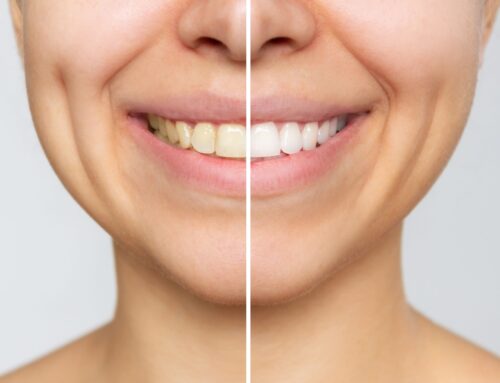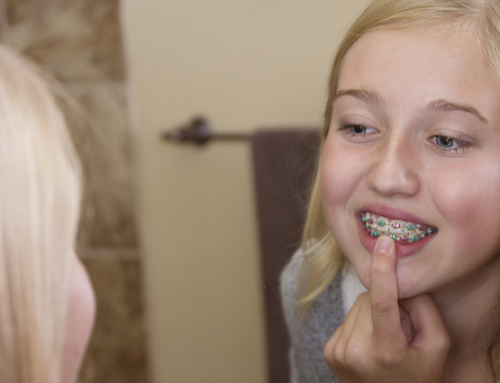How to Fight Tooth Decay for Children and Adults

Tooth decay is one of the most prominent and problematic concerns in American dentistry. Tooth decay is where all of the major problems start. Cavities, tartar, plaque build-up, and others are all problems that come from neglecting your oral health.
That’s why brushing and flossing are so important. If bacteria are given a chance to grow in your mouth, they will eat away at the enamel of your teeth. As the enamel on your teeth decays from the bacteria, your dental care costs continue to grow.
What Is Tooth Decay?
Tooth decay occurs when bacteria-caused acid burrows its way through the upper layer of the tooth. As it destroys more of the tooth, the damaged part of the tooth can begin to turn black and/or form a hole. This is also often referred to as a cavity or ‘cary.’
Unfortunately, tooth decay can be dangerous when left to its own devices. Unaddressed cavities can eventually reach the inner part of the tooth, resulting in pain and possible damage to the pulp or even the root of the tooth.
What Causes Tooth Decay?
Generally speaking, tooth decay occurs when bacteria consume sugars stuck to your teeth and produce a layer of acid. This acid wears away at enamel, destroying the tooth. The longer carbs linger on the tooth, the more time bacteria have to gorge themselves and produce harmful acids.
Bad oral habits increase your chances of developing tooth decay. For example, forgetting to brush and floss regularly is one of the easiest ways to develop a cavity. Consuming sugary drinks and foods and frequent snacking are also risk factors.
Why Is Childhood Tooth Decay Common?
One of the most popularly-theorized causes of tooth decay in young children is the popularity of sugary drinks and foods. These are marketed to American youth and many parents have no issues buying them. These sugary foods cause an increase in plaque on the teeth. When left untreated, it quickly devolves into tooth decay and starts rotting teeth from the inside out.
Why are children eating such high-sugar foods? Well, a large part of it seems to be tied to lifestyle and socioeconomic class. For people who don’t have the time or money to create three home-cooked meals every day, fast food and fun cereals are convenient solutions. Unfortunately, these solutions have a high sugar concentration.
The Worst Foods For Tooth Decay
Soda
Carbonated sugary drinks are the number one most famous example of foods that destroy your teeth if you consume them too often. Soda leaves a layer of sugar coated across your teeth and in the crevices between your teeth.
Starchy Foods
According to the American Academy of Pediatric Dentistry, starchy foods are worse for your teeth than candy because they stick to your teeth longer than candy does. Examples of starchy foods that are bad for your teeth include:
- White Bread
- Goldfish
- Potato Chips
If you still love foods like these, the best thing you can do to reduce how bad they are is to drink plenty of water, brush and floss after eating them, and even eat carrots afterward.
Ice
Never, and we mean NEVER, chew ice if you want to keep your teeth in good condition. Chewing ice, regardless of the type, causes microfractures in your teeth, puts undue stress on the enamel, and can even lead to damaging or breaking your tooth fillings.
Citrus
Oranges, lemons, limes, grapefruits, and other citrus fruits have the highest naturally occurring concentration of citric acid in natural foods. Citric acid also breaks down the enamel and makes it easier for cavities to develop.
Dried Fruits
Due to its high sugar content and its inherent sticky nature, dried fruits are also bad for you and your child’s teeth. Pieces of dried fruit can easily stick to the chewing surfaces of your teeth and it can take a long time for them to come off naturally. But if you’re proactive and brush your teeth regularly after you eat sticky foods, or even just drink plenty of water, you can mitigate some of these risks.
Sports Drinks
Sports drinks are full of sugar and salt. Thankfully since they’re only drinks, they won’t linger on your teeth as long as starchy foods. All the same, you or your child should still make sure to drink plenty of water and take care of your teeth regularly so cavities don’t have a chance to develop in your mouth.
Does Childhood Tooth Decay Affect Babies?
Believe it or not, humans of any age can develop tooth decay and other oral health problems. As long as you have teeth, those teeth can potentially be damaged. That’s why it’s so important that you start brushing from the very first tooth that pokes its way through your child’s gums.
Although your little one isn’t drinking soda, they are still drinking a sugar-filled liquid: milk. Liquids do more harm than snacking because they cover more areas of the mouth and get into every nook and cranny. Milk can stick to your babies teeth, leaving behind the natural sugars for bacteria to feed off of and produce the acid that causes cavities.
To prevent tooth decay with your baby, make sure to clean their teeth regularly to get the lingering sugars off their teeth. You should also avoid sharing food or utensils with your baby to avoid introducing new cavity-causing bacteria into their mouth.
Can Tooth Decay Be Reversed?
There is no natural or feasible way to reverse the tooth decay process after it’s started. Now, to be clear, reversing tooth decay would mean regrowing your tooth enamel after decay has started eating it away. There is no way to do that. But there are ways to fight tooth decay and prevent it from getting worse.
How To Fight Tooth Decay
Good Oral Health Habits
It’s important to brush your child’s teeth regularly. Make sure to ask your pediatric dentist for a recommendation as far as toothbrushes and toothpaste go. For the first year or two, your child’s teeth will probably require very little toothpaste.
Once your child grows up a little and has more teeth come in, they’ll need flossing as well. This will help get solid food particles out from those small crevices.
Dental Check-Ups
Aside from taking care of your teeth on a daily basis, dental check-ups are your next best line of defense. During a dental check-up, your dentist can take a look at you or your child’s teeth. They’ll look for signs of tooth decay, gum disease, or other oral health conditions. Bi-annual cleanings can help remove plaque buildup as well.
When choosing a dental provider, make sure to do some research and ask around. Word of mouth can be a great tool for finding a new dentist. If you have a baby or children, you may want to find an office that offers pediatric care. For example, here at Snodgrass-King Dental, we offer services for children and adults alike. Our pediatric dentists have years of experience dealing with small children. We offer a variety of services — everything from fillings and crowns to adult care, such as teeth whitening.
Healthy Eating Habits
As we mentioned earlier, sugars and carbs are well known to increase your chances of developing tooth decay. Unlike cookies, broccoli and other veggies don’t offer much for bacteria to munch on. Sugary drinks are quite harmful as well. Instead of soda, try to opt for water or other low-calorie drinks. Keep in mind that juices and milk still have inherent sugar, even when not added.
Tooth Decay Stages
In between visits to the dentist, how can you tell if you have tooth decay going on? Learning more about the stages of tooth decay can help you recognize when your teeth need help.
Stage 1: White Spots Appearing On Your Teeth
Teeth getting whiter should be a good sign right? Well, if you notice little white spots on your teeth, it could actually be a bad sign. When tiny white spots start forming just under the enamel of your teeth, it’s a sign that the surface of your teeth is wearing thin because of sugars and acids and bacteria wearing away at your teeth.
If you’re not a dental professional, it can be hard to tell for sure, but if you do notice something like this, then see if you can see your dentist sooner to address any concerns.
Stage 2: Brown Spots
After your enamel starts to demineralize, the white spots on your teeth will begin to turn brown as the enamel continues to decay. Tooth decay treatment at this stage involves getting the decayed materials removed and then filled with resin, silver fillings, amalgam fillings, or composite fillings.
Related: Dental Fillings at Snodgrass-King
Step 3: Extreme Tooth Sensitivity to Temperature
The next stage occurs when the inner material of your teeth, the dentin, starts to decay. At this stage, your teeth will become highly sensitive when you eat or drink anything hot or cold.
Once dentin decay starts, it becomes very fast. But, if you catch it early enough it can be fixed with a regular dental filling. However, the fix for extreme dentin decay is for your dentist to remove the decayed material and replace it with a dental crown.
Stage 4: Tooth Pressure and Swelling
After your dentin decays, the decay will spread to the inner pulp of the tooth. Swelling and pressure inside the tooth will occur as the pulp gets damaged. Other symptoms of this stage include:
- Changes in tooth color from white, to gray, to black
- Bad breath and bad smells coming from the tooth
- Swelling around the decaying tooth
- A bad taste in your mouth
When your tooth decay gets to this stage, you will need to have a root canal. Like the process for treating a cavity, your dentist will remove the damaged tooth tissue, fill it with a cavity and then place a crown over it to protect what’s left of the tooth.
Stage 5: Infection and Necrosis
The final stage of tooth decay involves tissue death of the pulp, and then infection of the tooth that leads to an abscess. At this stage, you’ll experience extreme pain in your mouth, face, gums, and jaw.
The abscess needs to be treated as soon as possible to prevent the infection from spreading to your jaw and other parts of your body. Typically, a dentist will remove the tooth as part of treatment for this stage of tooth decay.
Depending on how far the infection has spread, you may be prescribed antibiotics to kill the remaining bacteria and prevent further infection.
Other Tips to Fight Tooth Decay
- Use a fluoride toothpaste
- Avoid snacks in between meals
- Promote healthy snacking
- Establish good brushing and flossing habits
- Ask your dentist about dental sealants for children
Prevent Tooth Decay By Visiting Snodgrass-King Family Dentistry in Middle Tennessee
Looking for a new pediatric dentist? We’d be happy to have you here at Snodgrass-King Dental! We offer services for children and adults alike. This means that you can come in for your dental cleaning while your child gets theirs. The best part? You get to know all of your family’s dental providers and establish a long-term relationship with them.
Our staff believes in offering the best service possible to our patients. That’s why we treat each patient that walks through our doors as if they were family. Want to hear from some of our current customers? Check out our online reviews! Our clients love us, and it shows.
Our practice offers a variety of services; here are a few:
- Dental Sealants
- Fillings
- Crowns
- Tooth Extractions
- Crossbite Correction
- Teeth Whitening
- Implants
- And much more…
If you’d like to learn more about Snodgrass-King, don’t forget to check out more of our website. You can meet some of our team members here. We’ve also got a blog filled with lots of articles with great info about how to take care of your teeth. You can find new patient forms and helpful contact information as well.
For your convenience, our practice offers a handful of offices throughout the Tennessee area. Our offices are located in Franklin, Spring Hill, Murfreesboro, and Mt. Juliet. All of our locations offer top-tier dental services to their communities. We’re proud to be a cornerstone of the Tennessee community, and we couldn’t be happier to serve our patients.
Interested in scheduling your first appointment? Call or fill out our online form today. We’d love to meet you!





